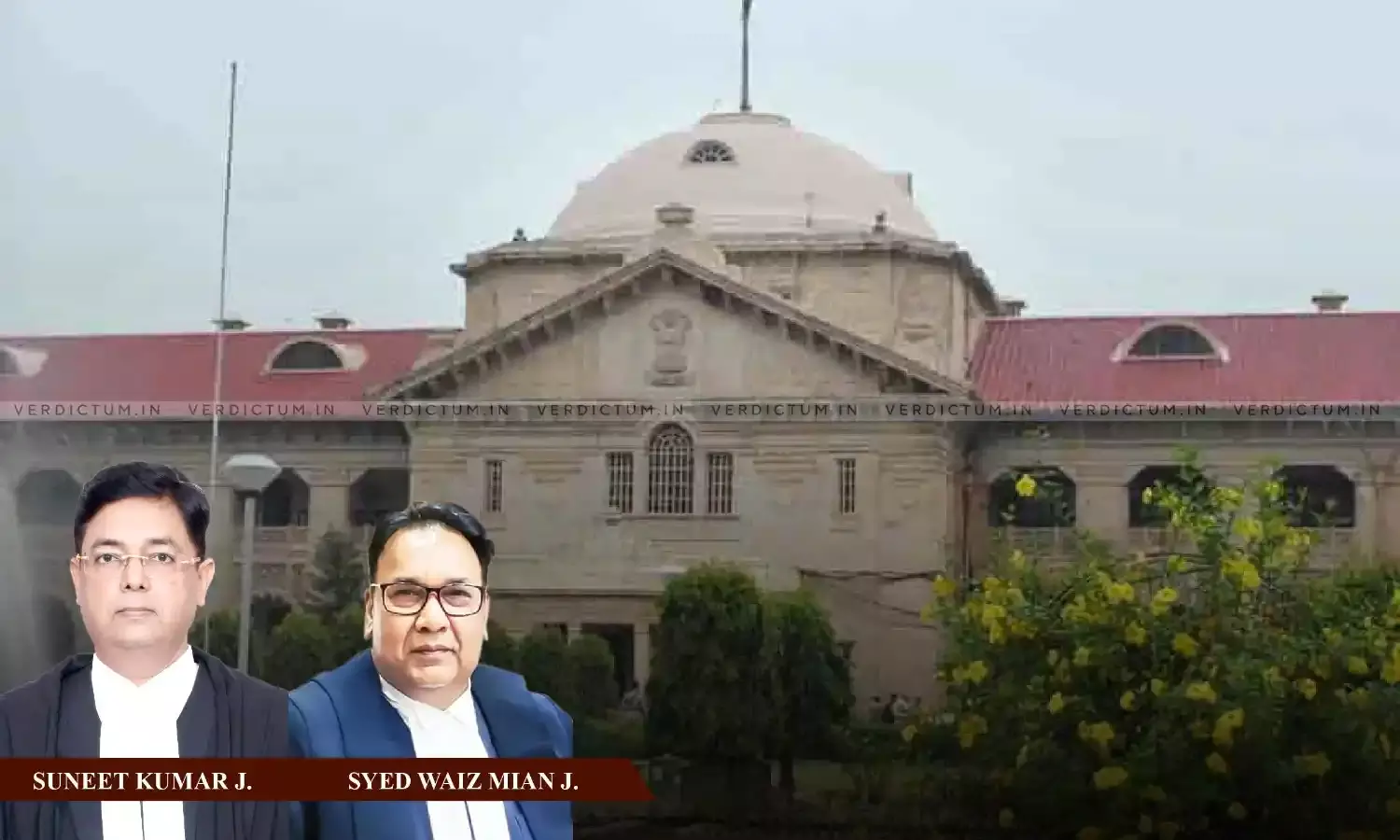Allahabad High Court Directs Disciplinary Action Against Police Officer Who Sheltered Accused In Minor Rape Case

The Allahabad High Court has directed the Director General of Uttar Pradesh, Lucknow, to initiate disciplinary proceedings against an investigating officer (SHO) who tried sheltering the accused in a rape case of a minor.
The Bench of Justice Suneet Kumar and Justice Syed Waiz Mian also held that until the pendency of the inquiry against the police official, he shall not be appointed Investigating Officer in any other case of crime.
In this case, the victim had approached the High Court alleging misconduct and involvement of the police official – fourth respondent in the overt act of sheltering the accused, thereby exceeding his power under the garb of his official duty.
It was alleged that the Petitioner approached the Police Station to lodge an FIR but the same was not lodged. Her plea was also dismissed by the Magistrate.
She had alleged that she was a minor aged about 17 years on the date of the incident. All three accused had outraged her modesty and also prepared a mobile clipping of the incident. Thereafter, she was continuously tortured and threatened by the accused and compelled to enter into a physical relationship with them or else, they would make the clipping of the incident viral.
It was further alleged that the victim thereafter got married. Even after that, the accused continuously threatened and compelled her to forcefully enter into a physical relationship on the threat of the video clipping and finally coerced and ruined her married life by sending the video clipping on the mobile phone of her husband.
The police official-fourth respondent investigation filed a police report against the fifth respondent and discharged the sixth and seventh respondents since they were not seen in the video clipping, therefore, their presence at the time of the incident was doubtful.
The petitioner filed a protest petition against the police report, which came to be rejected by the Magistrate concerned, relying upon the material, oral, and documentary, which was made part of the prosecution case. Thereafter, the petitioner approached the High Court making serious allegations against respondent no. 4 that he was hand in glove with the accused, in particular, respondents nos. 6 and 7.
It was further alleged that statements recorded under Section 161 CrPC of the victim, her parents, landlord of the room where the incident had occurred were not registered as per the statement given by them, instead, they were manipulated by the fourth respondent to aid and abet in the discharge of the accused respondent nos. 6 and 7 during the investigation.
While the fourth respondent in the affidavit filed before the Court had attempted to justify his conduct by stating that after recording the statement of the mother, father of the victim, landlord, and other witnesses under Section 161 Cr. P. C. and on viewing the video clipping, it transpired that the sixth & seventh respondents were not present at the time of incident.
The Court noted that the fourth respondent has thrown the Indian Evidence Act to the wind by himself and arrived at a conclusion that the statement of the victim is perse, false and thus observed –
"The fourth respondent has adorned upon himself the role of an investigating officer, as well, of a Court. The victim has been running from post to pillar but of no avail. In either case, the fourth respondent has exposed himself for civil and criminal consequence and is liable to be dealt with accordingly."
The Court also noted that the investigation is for the purpose of collecting evidence by a police officer and otherwise by any person authorized by a Magistrate in this behalf, and also pertains to a stage before the trial commences.
Thus, the Court observed –
"The expression 'fair and proper investigation' in criminal jurisprudence contemplates: Firstly, the investigation must be unbiased, honest, just and in accordance with law. Secondly, the entire emphasis on a fair investigation has to be to bring out the truth of the case before the court of competent jurisdiction. Once these twin paradigms of fair investigation are satisfied, there will be the least requirement for the court of law to interfere with the investigation, much less quash the same, or transfer it to another agency. Bringing out the truth by fair and investigative means in accordance with law would essentially repel the very basis of an unfair, tainted investigation or cases of false implication. Thus, it is inevitable for a court of law to pass a specific order as to the fate of the investigation, which in its opinion is unfair, tainted and in violation of the settled principles of investigative canons."
The Bench held that a fair must commence only after an investigation is itself fair and just. The ultimate aim of all investigation and inquiry, whether by the police or by the Magistrate, is to ensure that those who have actually committed a crime are correctly booked, and those who have not are not arraigned to stand trial. That this is the minimal procedural requirement that is the fundamental requirement of Article 21 of the Constitution of India cannot be doubted.
Accordingly, the Court disposed of the Petition with a direction to the DGP, Uttar Pradesh, Lucknow to initiate disciplinary proceedings against the fourth respondent for major penalty, for dereliction of duty and exceeding his powers as Investigation Officer.
Cause Title – Kanika v. State of UP and 6 others

